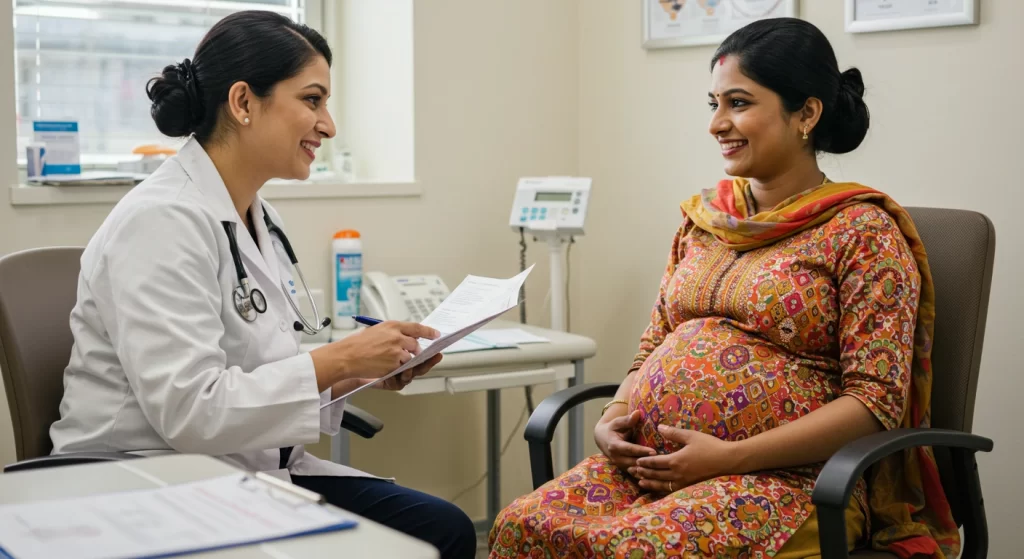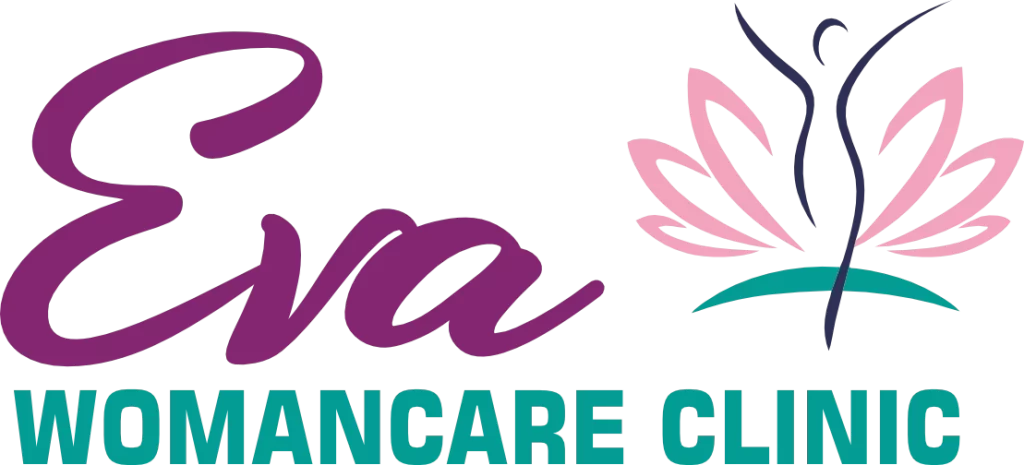The moment you see a positive test, questions start showing up just as fast. What should I eat? When do I see a doctor? Is this feeling normal?
Uncertainty can grow louder than the excitement if you let it. That’s why your first pregnancy check-up matters more than most people realise. It’s where clarity begins and where real care takes shape.
Early visits help catch risks, answer questions, and build a foundation for the months ahead. This isn’t just the start of pregnancy care. It’s the start of support.
When to Schedule and Why Timing Matters
For most pregnancies, the first check-up should happen between 6 to 8 weeks. This is the window where your doctor can:
- Confirm the pregnancy
- Estimate your due date
- Screen for early risks or complications
But if you have:
- A history of miscarriages
- Conditions like diabetes or thyroid imbalance
- Concerns about unusual symptoms
…don’t wait. The earlier you’re seen, the more control you have.
If you can’t make it to the clinic right away, start with a teleconsultation. It’s not just about convenience; it ensures support kicks in when it matters most.
What to Expect at Your First Prenatal Check-Up

The first appointment isn’t just about ticking boxes; it’s where the foundation of your pregnancy care takes shape.
At Eva Woman Care Clinic, we keep this visit structured but personal, so you’re not left feeling like just another file number.
Here’s what typically happens:
1. Registration and File Creation
You’ll be welcomed by our front desk team and guided through a short registration process. We’ll create your personal pregnancy file, covering essentials like:
- Medical history
- Insurance details
- Any past or ongoing health concerns
Not sure what to carry? Just bring your ID, any previous reports, and we’ll take care of the rest.
2. Health and Physical Examination
A routine health check includes:
- Height, weight, and BMI
- Blood pressure and pulse
- A gentle pelvic exam to assess uterine changes
This helps us confirm pregnancy progress and spot any red flags early, before they become problems.
3. Confirming Pregnancy and Location
Depending on your timing, a transvaginal scan may be done to confirm fetal location and rule out ectopic pregnancy.
We walk you through every step so you’re not just getting checked, you’re understanding what’s being checked and why it matters.
Core Diagnostic Tests at the First Visit
What’s happening inside matters just as much as how you feel on the outside. Your first check-up includes essential screenings to map your health profile and identify any early risks.
At Eva Woman Care Clinic, the majority of tests are conducted in-house to keep your journey smooth and coordinated.
Blood Tests Typically Include:
- Blood group and Rh factor
- Hemoglobin and sugar levels
- Thyroid function (TSH)
- Immunity screening for rubella
- HIV, Hepatitis B, and syphilis panels
These results help us catch common issues like anaemia, gestational diabetes, or infections before symptoms even appear.
Urine Test
We’ll check for signs of infection, dehydration, or excess protein, all of which can point to early pregnancy complications.
Ultrasound and Due Date Estimation
An early scan gives us a clearer picture of your baby’s age, position, and whether you’re carrying multiples.
We calculate your Estimated Due Date (EDD) based on this scan or your last period, whichever is more accurate.
Optional Genetic Screening
If needed, we may recommend first-trimester screenings like:
- Nuchal translucency (NT) scan
- Non-invasive prenatal testing (NIPT)
These help assess chromosomal health, especially for women with a family history or advanced maternal age.
You’re never left guessing; we explain what’s being done, what the results mean, and what your next steps should be.
Doctor’s Guidance: Nutrition, Supplements & Lifestyle
Care doesn’t end with tests. At your first appointment, we’ll walk through how your daily habits can support a healthy pregnancy, without overwhelming you with conflicting advice.
Food: What to Focus On
You don’t need to “eat for two.” You need to eat smart. We’ll guide you on:
- Foods rich in folate, iron, and calcium
- What to avoid: raw meats, unpasteurised dairy, alcohol, excess caffeine
- Tips for managing nausea, acidity, and fatigue through meal timing
You’ll leave knowing what fuels your body, not just what to avoid.
Supplements: Backing Your Diet
Even with a balanced diet, supplements are essential in early pregnancy.
Based on your needs, we may start:
- Folic acid (to reduce neural tube risks)
- Iron (to prevent anaemia)
- Calcium (for bone support)
We adjust for vegetarians, dietary restrictions, or existing conditions. Everything is prescribed based on your bloodwork, not guesswork.
Lifestyle: What to Shift Gently
We also cover simple, realistic changes:
- Improving sleep hygiene
- Staying active with short walks or light prenatal stretches
- Managing screen time before bed
It’s less about rules, more about rhythms that make each day easier to handle.
Mental Health and Emotional Check-In

Pregnancy isn’t just physical; it affects your mood, sleep, and state of mind.
That’s why we take mental health seriously from the very first visit.
At Eva Woman Care Clinic, we ask how you’re really doing, because stress and anxiety show up early and often go unnoticed.
What You Might Feel
- Mood swings or irritability
- Restlessness or poor sleep
- Feeling overwhelmed by small things
These may feel like signs of weakness, but they’re common hormonal shifts, and you’re not alone.
How We Support You
- Time during your check-up to talk openly
- No judgement, no brushing things off
- Recommendations for rest, breathing routines, or supportive resources if needed
We don’t wait for mental health to become a problem. We check in early and often, so you feel heard, not just examined.
Building Your Pregnancy Care Roadmap
Pregnancy unfolds in stages, each with its own milestones and medical needs. Your first prenatal visit includes setting a plan that evolves with you, and this is how Eva Woman Care Clinic supports that journey without exaggeration.
Visit Schedule by Trimester
Most patients follow this basic rhythm:
- Weeks 0–28: Monthly check-ups
- Weeks 28–36: Every two weeks
- Weeks 36 onward: Weekly monitoring
High-risk cases get additional visits or early interventions.
Personalised Pregnancy Plan
Every pregnancy is unique. Your plan considers:
- Medical and family history
- Any previous complications
- Delivery settings or cultural preferences
It’s not a template. It’s care built around who you are.
What You Should Know Between Visits
We guide you on signs to watch for, when to seek help, and how to stay organised.
What’s included:
- Information on relevant warning signs
- Advice on tracking reports or notes your way
- Regular test scheduling via the clinic
This ensures clarity so you stay informed and calm between appointments.
Your First Visit Is More Than a Check-Up. It Marks the Beginning of Real Care.
The first appointment does more than confirm a pregnancy. It creates a foundation for what comes next.
You walk out with answers. You understand what your body is doing. And you feel guided, not left guessing.
Early care matters because it gives you time to prepare, not react. It helps prevent complications, supports your emotional well-being, and gives your doctor the full picture.
At Eva Woman Care Clinic, your journey begins with respect, clarity, and a plan that works for you. From your very first visit, the focus stays on what you need, not just what the chart says.
Book your first pregnancy check-up today. The earlier you begin, the smoother the road ahead.
Frequently Asked Questions
1. Can I choose where to deliver even if I start my check-ups at Eva Woman Care Clinic?
Yes. While we provide antenatal care, you are free to plan your delivery at a hospital of your choice. We coordinate with several reputed hospitals and help ensure your care transitions smoothly if needed.
2. What if I have no symptoms? Do I still need an early check-up?
Absolutely. Some pregnancy risks do not show symptoms early. An initial check-up helps confirm the pregnancy location, date, and overall health. Silent conditions like thyroid imbalance or anaemia can affect outcomes if left unchecked.
3. How private is the consultation process for first-time mothers?
Your privacy is always respected. Consultations take place in private, one-on-one settings. You are welcome to ask questions freely, and nothing is shared without your consent.

